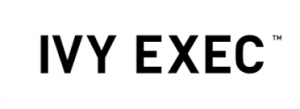 (Shared from the Ivy Exec newsletter)
(Shared from the Ivy Exec newsletter)
Confidence is a major contributing factor to accomplishing our goals and how we are perceived in the workplace— but it’s not a naturally occurring trait in all of us. For those who already feel confident but want to build, and those who don’t feel confident and sorely need to develop this muscle, what can they do from a practical and mindful standpoint to build confidence at work and attain a comfortable level of professional confidence?
When it comes to confidence, we tend to know it when we see it. As Beverly Solomon, creative director with Beverly Solomon Design says, “I have lived long enough, and been successful enough, that many young women have approached me with the same question over the years.” Confidence, she says, can be conveyed through a calm strength and believe in yourself—that you have something positive to offer and that you have achieved positive things. As we discussed in a previous post, though, confidence needs to be backed by competence—it’s an ongoing building process, a work in progress.
Confidence, says Sherrie Dunlevy, an author, and speaker, is a muscle that needs to be built and so it is truly a practice. “As with anything in life you wish to improve, be it athletic skill or professional skill, the more you practice the better you become.” Here are some tips and recommendations from personal coaches and business experts on how to build confidence at work.
6 Tips on How to Build Confidence at Work
1) Believe in Yourself
“Developing confidence begins with understanding that true confidence is the result of the true strength of character, knowledge, experience, wisdom, health, good ethics, etc.,” Solomon says. “You may fake it for a while but, when things get tough you must produce.”
Asking for third-party feedback—and taking it to heart, without discounting its relevance—can be one way to start building a list of your personal competencies. Having a clear picture of your strengths from an external perspective can be very helpful to build confidence at work.
2) Practice Visualization
Dunlevy suggests that women use visualization to help them down the path to confidence. “Begin with envisioning what you would look like as your most confident self,” she suggests. “What are you wearing? How are you standing or sitting? Who are you talking with? What are you talking about?” Then, start living the vision! “Start practicing in your everyday life. Keep practicing at work and, like any muscle you are working to build, the more you use it, the stronger and more confident you will become.”
3) Look the Part
Solomon says: “The Chinese say that to be a tiger, you must first look like a tiger.” For women in the workplace who wish to be viewed as confident, she says, this means developing their posture, poise, health and wardrobe. In essence, you need to look the part.
“Start with good posture and being a good listener. Just the act of standing straight and appearing to be carefully weighing what others are saying projects a positive and strong image.”
4) Learn Through Others
Watching others who you feel are confident and how they display that confidence can be a good way to pick up on some best practices, says Solomon. “Try to study what truly confident people share in common. Avoid losers and losing situations. Hang out with people of worth and achievement.”
5) Learn Through Failure
Maryna Shkvorets is a public speaking strategist who specializes in helping shy clients gain confidence. Building confidence doesn’t come simply through success, Shkvorets points out—failure is an important teacher and the source, ultimately, of strength. “You have to put yourself out there in uncomfortable situations,” she says. “You have to be okay with the possibility of failing. In fact, failing when you attempt something big is the fastest way to learn that going for it wasn’t so scary after all,” she says. A good starting point: “Start by putting yourself out there and acting more confidently where the stakes are small.”
Be careful here, though, to not get mired down with negative language, recommends Helen Godfrey, a counselor and life coach with The Authentic Path. Too often, she says, once we’ve tried something for the first time, or taken a new risk, our internal conversation tends to go something like this: “That was terrible!” “I am SO stupid!!!.” “I’ll never learn how to…”
Stop, she says. “You are the only one in your head so why not be kind to yourself? How about: ‘I have never presented on that topic so, for the first try, I think I did pretty well. Here is what I would do differently next time…?’” Be your own cheerleader, Godfrey recommends. “If you find this difficult, imagine what you would say to your best friend if she started talking about herself the way you are talking to yourself internally. What would you say? How would you pull her out of this downward spiral?”
6) Track Your Progress
In addition to often spending too much time mired in negative self-talk, says Godfrey, we also have a tendency to fail to take the time to celebrate, or track, our successes. “We race from project to project without taking time to celebrate how far we’ve come,” she says. She recommends tracking progress and accomplishments on an ongoing basis. “Quantifying your achievements is a validating and factually based way to build confidence because you see the data in front of you,” he says. “Journaling about your day can build your self-confidence as well.”
“As you accumulate accomplishments and you share your success by helping others, seeing that you have made a positive change in this world will help to build your self-image and your confidence,” says Solomon. By aligning your feelings of confidence with areas of true competence you’ll build a strong professional brand based on the ability to really deliver.
Read the original article in the Ivy Exec newsletter here.
__________________________________________________
About the Author
Lin Grensing-Pophal is a freelance business journalist and content marketer with a wide range of writing credits for various business and trade publications. In addition to freelance writing for trade journals and publications, Grensing-Pophal does content marketing for Fortune 500 companies, small businesses, and individuals on a wide range of subjects, from human resource management and employee relations, to marketing, technology, healthcare industry trends and more.

